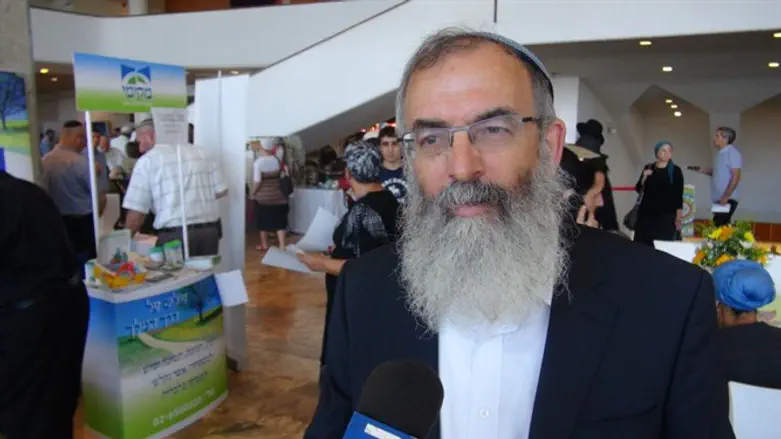
Rabbi David Stav, the Chairman of the Tzohar organization, who unsuccessfully ran for the post of Ashkenazi Chief Rabbi in the past elections, said in an interview with Arutz Sheva that the invitation given to Rabbi Yona Metzger to attend a conference of municipal rabbis in the same city as the seat of the Chief Rabbinate shows the lack of influence of the rabbinate.
Rabbi Metzger had earlier announced that he would not attend the conference, titled 'On the Dignity of the Rabbinate,' today at the Ramada hotel in Jerusalem.
"The dignity of the rabbinate is very important to us. We want to see a clean and moral rabbinate. Therefore, to invite someone who served as Chief Rabbi and who was suspected of criminal offenses reveals a lack of understanding of what is expected of the rabbinate. The expectation is that the rabbi will broadcast morality, sensitivity, and integrity." Rabbi Stav said.
According to Rabbi Stav, Rabbi Metzger did not understand just how the dignity of the rabbinate has fallen recently when he issued invitations to the conference "and how impervious they are to what is happening outside, and how Israeli society needs a different voice."
Rabbi Stav was not surprised at all about the downfall of Rabbi Metzger. "Those who elected him wanted to denigrate the dignity of the rabbinate, and instead of choosing scholars such as Rabbi Ariel (Chief Rabbi of Ramat Gan, the leading contender and a renowned Talmud scholar until political maneuvering on the part of haredi delegates elected Metzger in a surprise coup, ed.), they chose someone who would serve the interests of their parties. In any case they (the haredim) do not rely on the opinions of the Chief Rabbinate. Not in training, or conversion, or anywhere else. It doesn't interest them. They are just looking for jobs and power."
Rabbi Stav said that it is time to separate the Chief Rabbinate from politics altogether. "There must be a complete disconnect between the rabbis and politics, and it is impossible for politicians to continue to run the Chief Rabbinate anymore. Maybe it is better to move the selection (of the chief rabbis) to the general public because the situation in which politicians run the rabbinate invites trouble."
The Chief Rabbis are chosen by a voting body which includes Religious Zionist and Haredi rabbis, mayors and MKs. The haredi representatives were able to garner a majority in the last elections, which saw political pressure put on the mayors and deals between the haredi Ashkenazi and Sephardi contenders to prevent the election of the Religious Zionist candidates.